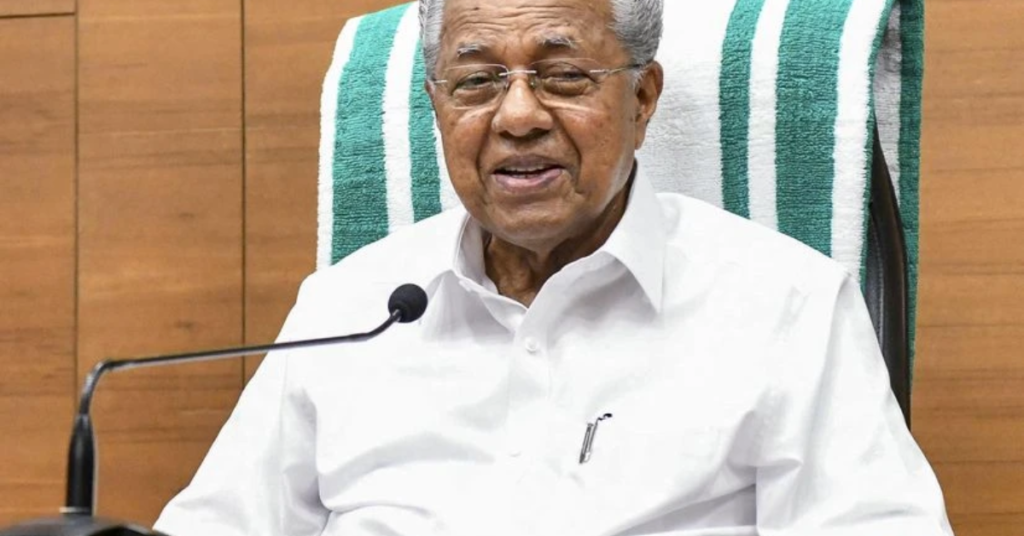The State Minister of Higher Education and Social Justice, R. Bindu, recently announced that Kerala will not accept the Learning Outcomes-Based Curriculum Framework (LOCF) issued by the University Grants Commission (UGC).

The Kerala government has officially rejected the Learning Outcomes-Based Curriculum Framework (LOCF) proposed by the University Grants Commission (UGC). State Minister for Higher Education and Social Justice, R. Bindu, declared that the framework will not be implemented in the state, citing concerns over academic rigor, ideological bias, and infringement on university autonomy.
The minister revealed that an expert committee thoroughly examined the draft before arriving at this decision. A formal letter has already been sent to Union Education Minister Dharmendra Pradhan and UGC Acting Chairperson Vineet Joshi, notifying them of Kerala’s strong disapproval.
Autonomy of Kerala Universities at Stake
According to the Kerala government, the UGC exceeded its constitutional mandate by prescribing syllabi, course structures, and reading lists for universities. In her letter, Minister R. Bindu asserted that such directives undermine the academic freedom and autonomy of higher education institutions.
Quoting from the letter, “Prescribing syllabi, course structures, and reading lists exceeds the constitutional responsibilities of the UGC.”
Growing Resistance from Academics and Students of Kerala
The rejection follows widespread opposition from educators, researchers, and student groups across India. Subject experts pointed out what they described as “grave defects” in core disciplines, including mathematics, sciences, economics, and engineering.
Over 900 academics, including Padma awardees and Bhatnagar Prize winners, have signed a petition demanding the withdrawal of the draft curriculum. Additionally, student organizations like the Students’ Federation of India (SFI) have submitted memorandums against the LOCF, amplifying the protests.
Flaws in Mathematics Curriculum
One of the strongest criticisms has been directed toward the UGC’s draft mathematics curriculum. Experts flagged that crucial topics such as real analysis, algebra, and applied mathematics were either inadequately represented or missing entirely. At the same time, outdated courses like analytical geometry and mechanics were retained.
Concerns were also raised over specialized courses. For example, the Mathematics in Music course was described as academically shallow, as it claimed to require only Class 10-level maths, while experts argue it actually demands advanced knowledge in areas like Fourier analysis and Markov chains.
Similarly, the Mathematics for Machine Learning course was criticized for offering only basic introductions to sets, functions, and vector spaces, leaving a mere 15 hours for in-depth machine learning concepts.
Another major point of contention is the perceived ideological slant of the LOCF framework. Kerala’s expert committee accused the UGC draft of aligning with the ideological agenda of the Sangh Parivar.
Examples highlighted include the incorporation of V.D. Savarkar’s writings in political science courses and framing corporate governance using the concept of “Ram Rajya.” Critics argue that these inclusions represent attempts to impose a specific ideological worldview within academic content, which undermines the objective and pluralistic spirit of higher education.
Call for a Comprehensive Review
Given the academic shortcomings and ideological issues, the Kerala government has urged the UGC to withdraw the draft curriculum entirely and initiate a comprehensive review in consultation with subject experts, educators, and universities.
Minister R. Bindu emphasized that while curriculum modernization is important, it must not come at the cost of academic rigor, university autonomy, or ideological neutrality.
The controversy surrounding the UGC’s draft LOCF highlights the growing tension between central directives and state-level autonomy in higher education. With Kerala taking a strong stance against the framework, the debate is likely to intensify, especially as academic bodies and student groups across the country continue to voice their concerns.
The final outcome may determine not just the future of the LOCF curriculum, but also the balance between centralized educational reforms and the independent academic culture of Indian universities.
https://thenewstudent.com/wp-admin/post.php?post=4010&action=edit